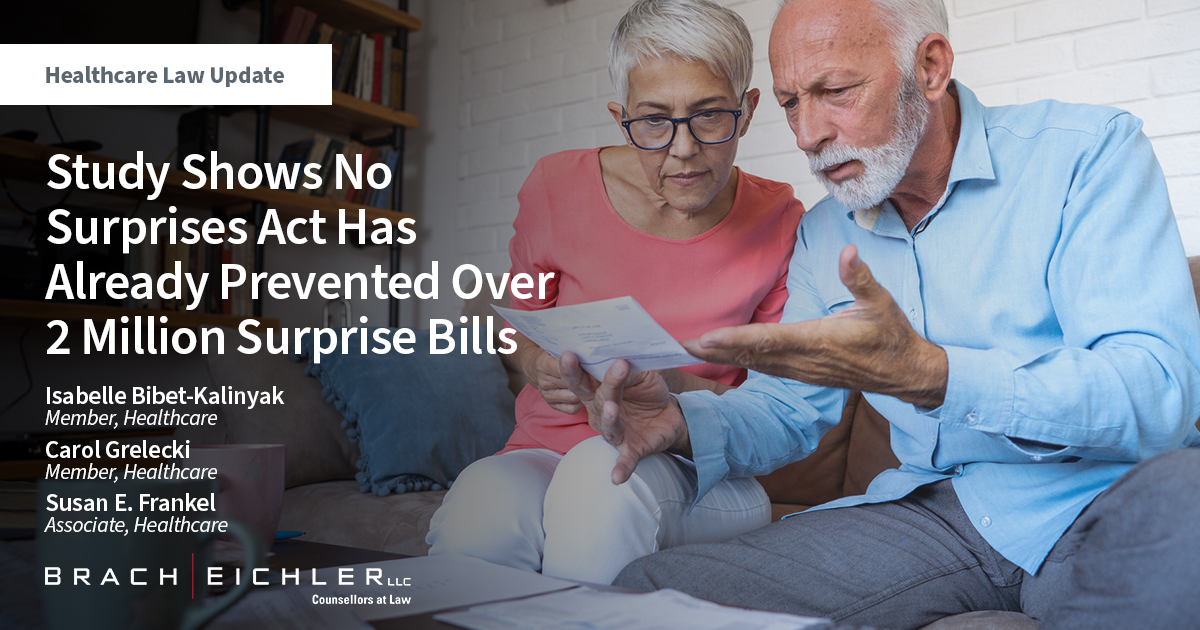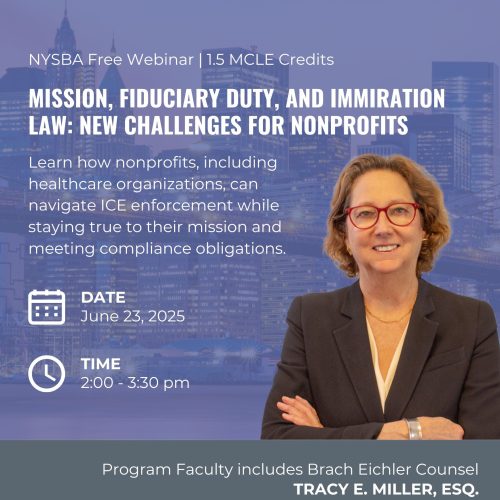Study Shows No Surprises Act Has Already Prevented Over 2 Million Surprise Bills

As previously reported in our January and April Healthcare Law Update, the federal No Surprises Act took effect on January 1, 2022 and applies to patients enrolled in private health insurance coverage or a group health plan. Under the law, when anyone is treated for emergency services or at an in-network facility by an out-of-network provider, the health care provider or facility is prohibited from billing above the in-network cost-sharing amount, with certain limited exceptions. The law provides for an independent dispute resolution (IDR) process for resolving disagreements on what the health plan will pay the out-of-network provider or facility.
A study released by America’s Health Insurance Plans (AHIP) and Blue Cross Blue Shield Association (BCBSA) found that in the first two months of 2022, the federal No Surprises Act prevented more than 2 million potential surprise medical bills across all commercially insured patients. The analysis also found that should this trend hold, more than 12 million surprise bills will be avoided in 2022. Notably, in crafting the regulations for the No Surprises Act, the Departments of Health & Human Services, Labor and Treasury originally estimated that there would only be approximately 17,000 claims submitted annual to the IDR process to resolve out-of-network payment disputes. If, however, 12 million surprise out-of-network bills are prevented each year, and only a fraction of those claims are ultimately disputed through the IDR process, that fraction would far exceed the government’s estimate. For example, just 5% of claims going through the IDR process would be approximately 600,000 claims. How this ultimately impacts the efficiency and outcomes of the IDR process remains to be seen.
The AHIP/BCBSA study also reported a recent poll which found that 8 in 10 voters, after learning about the No Surprises Act, are concerned that lawsuits from physician and hospital organizations could delay or overturn the patient protections in the law.












